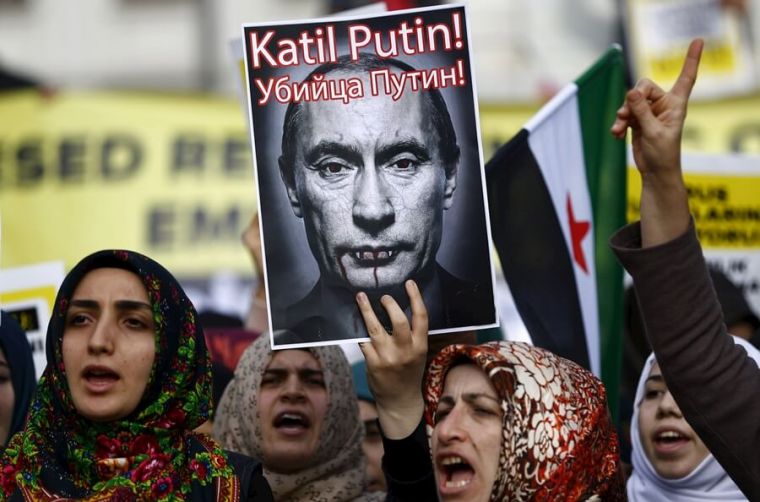Putin accuses Turkey of downing Russian jet to protect its 'illegal industrial scale oil trade' with ISIS

Tension between Russia and Turkey has intensified with Russian President Vladimir Putin accusing Ankara of shooting down a Russian fighter jet protect its oil trade with the Islamic State (ISIS) terrorist organisation.
Speaking in Paris on Monday during international talks on addressing climate change, Putin said Turkey's decision to shoot down the Russian Su-24 warplane on Nov. 24 was a "huge mistake," the Daily Express reported.
Putin said Moscow has reasons to believe that the Turkish air force was ordered to shoot down the Russian jet to protect the "illegal oil deliveries on an industrial scale" from an ISIS-controlled oil field in Syria to Turkey.
"We have received additional information confirming that that oil from the deposits controlled by ISIS militants enters Turkish territory on industrial scale. We have every reason to believe that the decision to down our plane was guided by a desire to ensure security of this oil's delivery routes to ports where they are shipped in tankers," Putin said.
Ankara has vehemently denied Russian accusation that it is helping ISIS in transporting and selling the crude oil from ISIS-held Syrian oil fields. It also refused to apologise for shooting down the Russian plane as demanded by Moscow.
Speaking at a news conference in Brussels on Monday after meeting with the secretary-general of the North Atlantic Treaty Organisation, Turkish Prime Minister Ahmet Davutoglu said Ankara was ready for talks with Moscow "at any level" but defended Turkey's actions, the Wall Street Journal reported.
"Protection of Turkish airspace, Turkish borders, is a national duty, and our army did their job," he said. "No country can ask us to apologise."
Meanwhile, the United States has independently confirmed Turkey's assertion that the Russian warplane it shot down last week violated Turkish airspace, a State Department official said on Monday.
Spokeswoman Elizabeth Trudeau would not describe however how the United States confirmed the Russian craft's flight path, NBC News reported.
NATO Secretary-General Jens Stoltenberg strongly supported Turkey's right to defend its territory.
"The airplane was in Turkey, it was engaged in Turkey, it had been warned repeatedly, and it was not the first incursion into Turkish airspace by Russian aircraft," said Douglas Lute, the U.S. envoy to NATO.
In Moscow, Prime Minister Dmitry Medvedev said Russia would initially stop importing fruit and vegetable from Turkey as he provided details of the sanctions announced Saturday in a Kremlin decree signed by Putin.
Medvedev warned that sanctions could be expanded if Turkey failed to meet Russian demands, led by an apology. "It's just the first step," he said, the Wall Street Journal reported.
Russia said it has also equipped its fighter jets with air-to-air missiles for the first time in "self defence."
Russian air force spokesman Colonel Igor Klimov said the missiles have target-seeking devices and are capable of hitting air targets within a 60km radius.
Putin is also sending more warplanes to Syria and also more troops two months after Russia began its air campaign against ISIS, the Daily Express reported.
Moscow is set to open a second airbase in Syria to accommodate the new jets and troops intent on destroying the militants.











